After a 3 year wait, and returning on its 40th anniversary, to say there was anticipation around Womad ’22 would be a vast understatement. The line-up played it safe in some respects, with old favourites looming large; but there were bright spots of new musical energy, hungrily met by pent-up punters looking for release.
Womad continues to do well what it always has done: it’s roomy, across site and programme, with time and space to roam around and dance freely; yet compact enough to happily wander all day. It’s no ‘walking holiday’ a la Glastonbury.
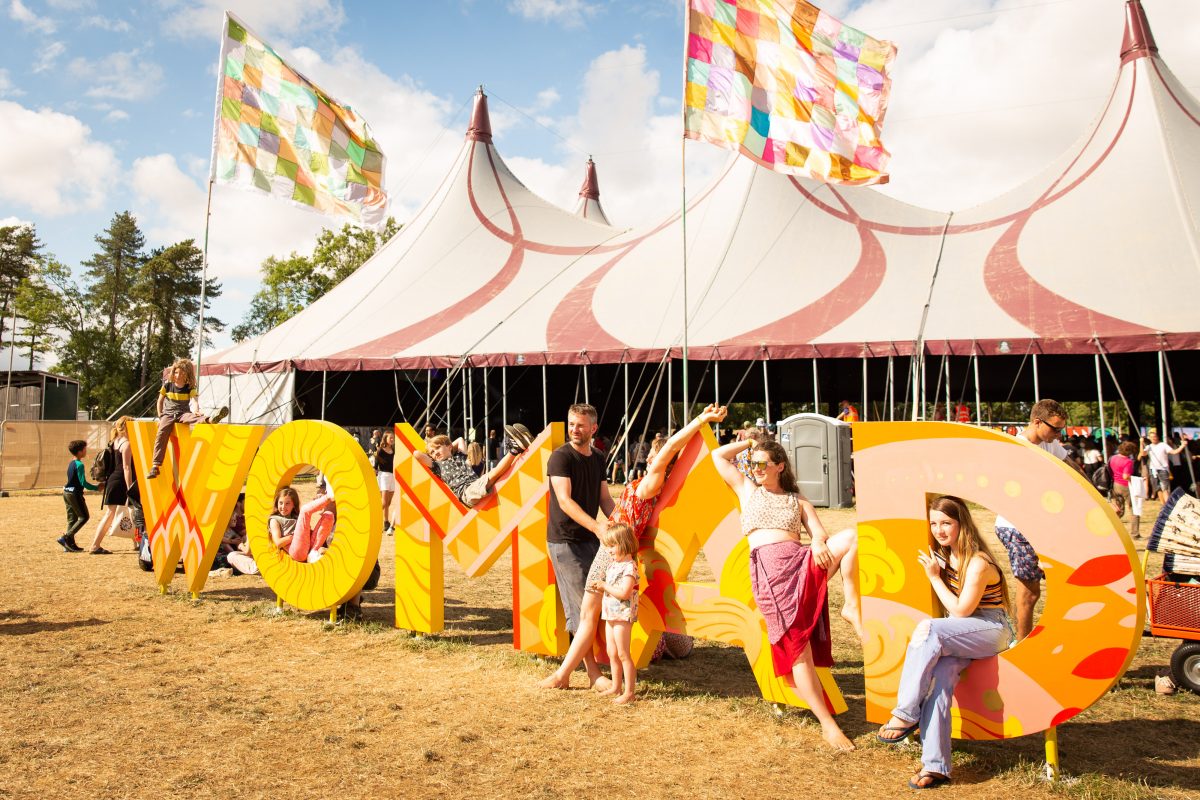
It makes the most of lush woodland – the wellbeing, word and science areas in a leafy paddock with the intimate Ecotricity stage; and a rainbow-lit forest bar marks the path to Luke Jerram’s Museum of the Moon, an immense suspended orb shrouded in Yazz Ahmed’s dreamy space-and-bass soundtrack.
And there’s a sense of community: the mood is warm and welcoming. There are some musical friends here that appeared at the first Womad in 1982. Founding Father Peter Gabriel pops up – introducing Osibisa with reminiscences of their collaboration at that first festival and dancing on-stage with Angelique Kidjo – clearly revelling in the family party he masterminded that’s still going so strong.
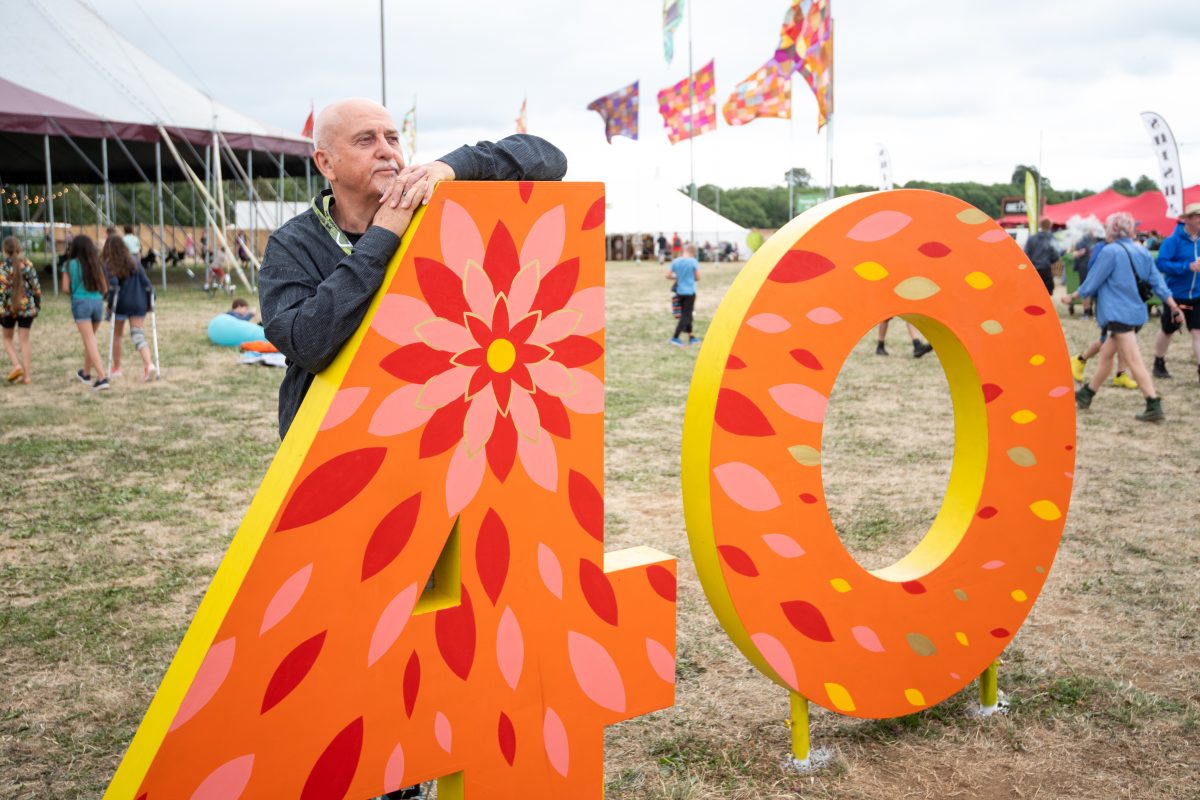
The new acts are the lifeblood that will continue his legacy, some travelling to the UK for the first time. Comorian, a raw homespun act born of the Indian Ocean and discovered by brilliantly passionate producer Ian Brennan, reveals so much of the festival’s expansive nature: a unique language from an unfamiliar land; homemade instruments; songs that speak alternately of going to the city to have shoes repaired, and in tongues to spirits unseen. All this, unexpectedly, in the World of Words tent, just a few feet away on a Saturday morning. Musical horizons – and those of the imagination – shifted exponentially.
In the same setting, Ukrainian experimentalists Folknery tell tall tales of their song-collecting travels on two wheels across 52 countries to Australia. Connecting musical threads, these cultures are simultaneously foreign and familiar. Ghanaians Alostmen have brought their homemade oil-can kologo here for the first time, greeting new faces with huge smiles and hugs. Music transports us, and makes us feel at home; it illuminates beautiful differences and bonds us with strangers. All this is found at Womad.
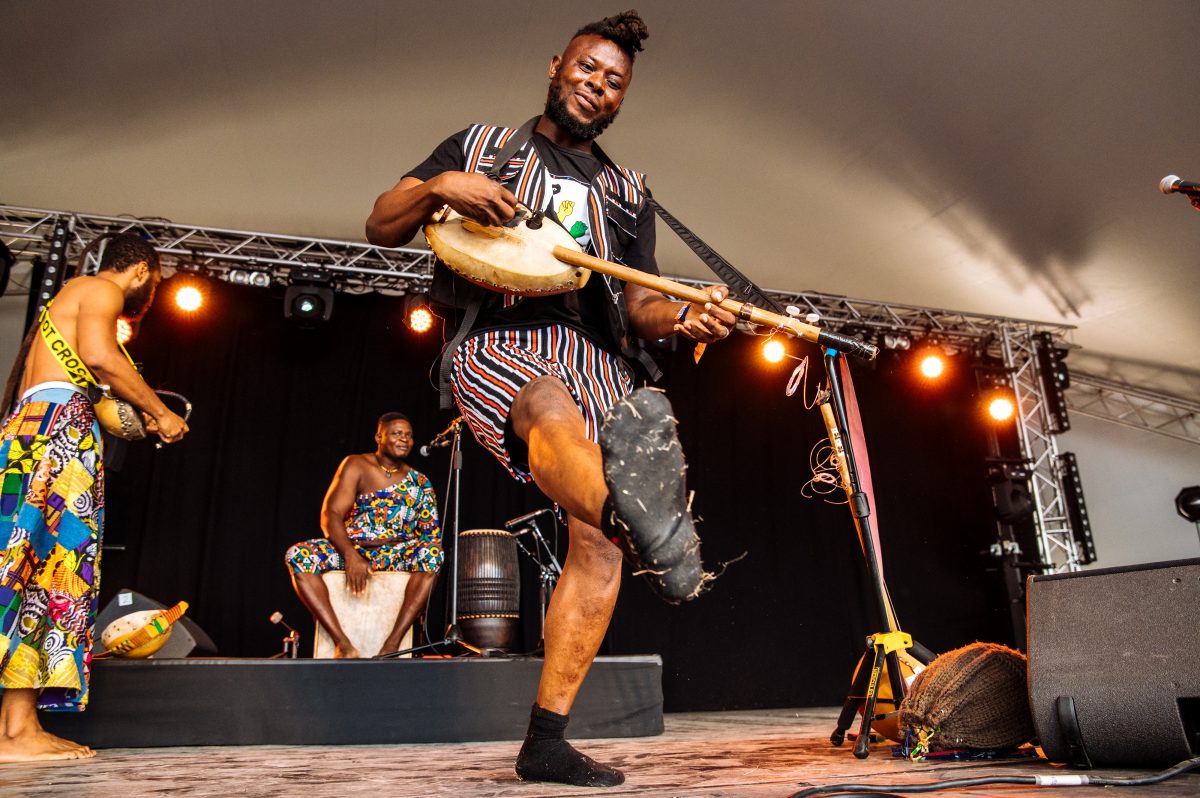
A common focus on re-energising tradition is what keeps the festival alive. Friday’s bolts of musical lightning electrify the blissed-out crowds. In Electric Jalaba’s recharged Gnawa guembri, qraqreb and screaming guitar solos soar above dance and dub foundations. Moroccan spiritual music, they tell us, can be transformative. In the blazing sun of a Womad afternoon it feels transcendent. “Money is not everything,” intones a beaming Simo Lagnawi; “Love, freedom, happiness is everything!” It’s music to the ears of these glowing, carefree dancers.
K.O.G. injects the music of the ancestors with a new spirit, setting the tent ablaze with his Afrofuturist highlife-meets-grime. Kweku dances, spins and cartwheels with chaotic energy; the frenzied audience reciprocates. A performer with oceans of charisma, he holds the crowd captivated for the entirety. Ending with (everybody get) ‘Mad Up’ is like a call to arms to these people, and the tent explodes.
We’ve missed this festival and, more than anything, we’ve missed dancing with a bestial spirit: we’re like animals finally uncaged.
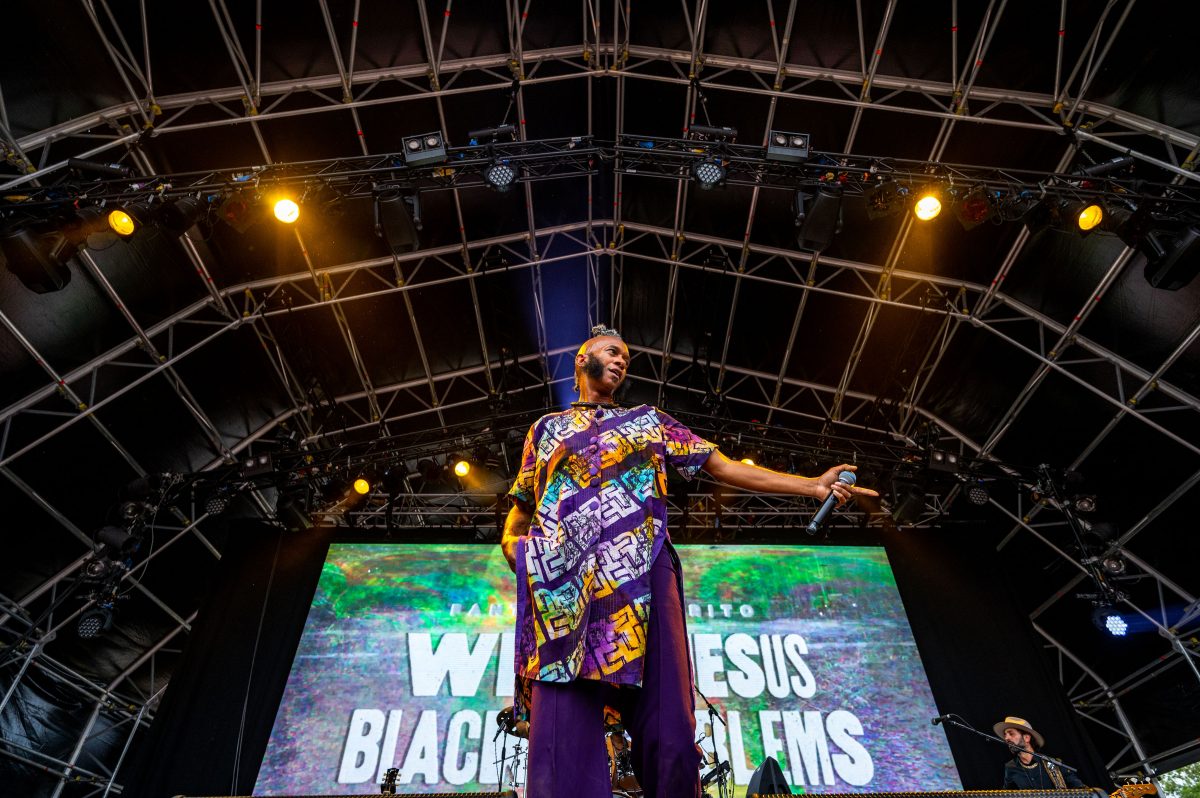
Fantastic Negrito, resplendent in silver-purple kimono, takes us to “church without religion,” a riveting set yet again received with raptures by a sun-baked crowd. Negrito embodies the spirit of the blues with every guttural moan and visceral howl, but brings it bang up to date, its values fresh for a new age. His purpose is plain, but he’s not heavy-handed: he tells a tale, makes us laugh and opens our eyes all the wider for it. We’re swept up and carried along on his journey, emerging on the other side to a world impalpably shifted.
On Saturday, the gateway to the blues opened by Bab L’Bluz again, sheds a new light on tradition but focuses on the sonic rather than the story. Frontwoman Yousra is a luminous magnetic force driving her band’s groove-heavy ‘Moroccan roll.’ They beef up the guembri and awisha sound with pedals and augment the qrareb with full kit drums. The result is a hypnotic, psyched-up tidal wave of heavy riffs, interlocking rhythms and silky, scintillating vocals, with trills cutting through the fuzz like a knife. It’s irresistibly danceable.
Parisian quartet Al-Qasar takes one desert-booted stride further into the world of fuzz, with a solid rock trio augmented by a smooth middle eastern vocalist and the muted crash of qrareb. Their Arabian groove is enticing, their stance powerful; they’re rakish, brooding and suitably assured.
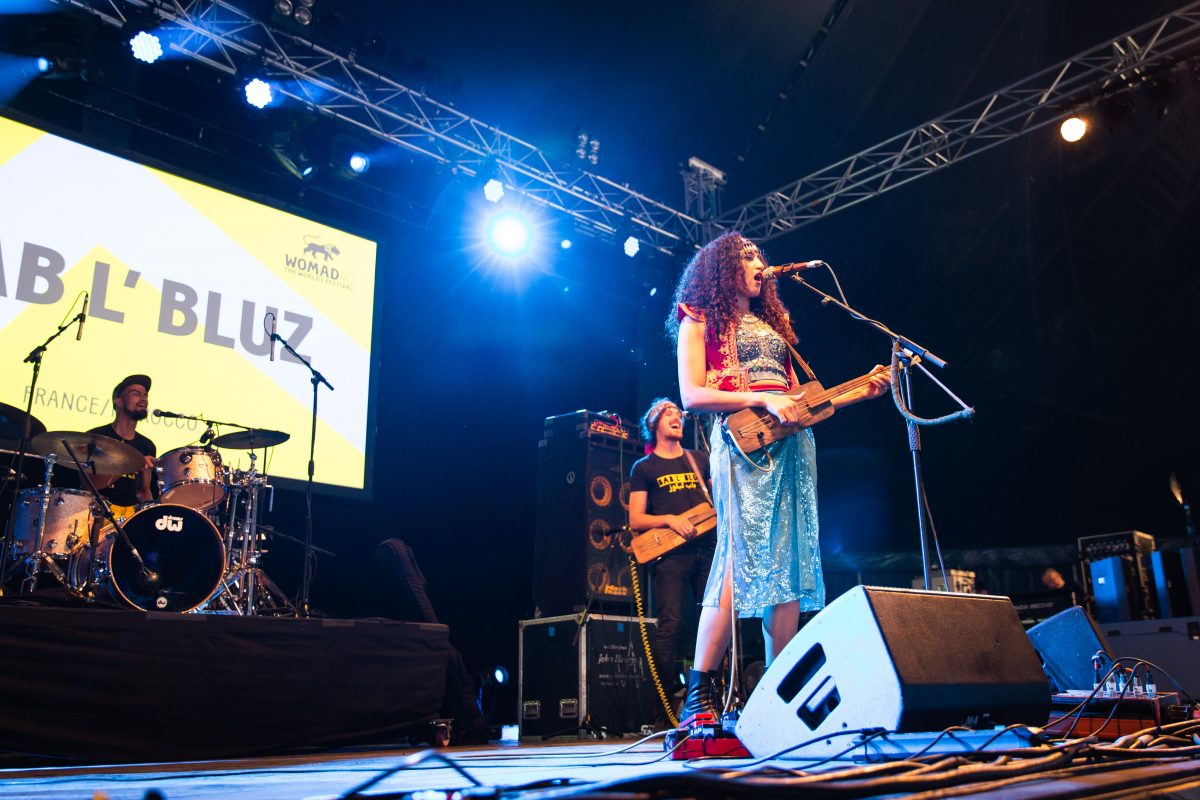
A sleepy Sunday afternoon crowd receives an affectionate happy-slap from Mexico’s Son Rompe Pera. Their garage-punk cumbia has us wide awake and flailing in no time. Hirsute, tattooed, eyes wild, they bring the restless, wiry energy of punk-rock to Latino folk with whoops, yells and bouncy basslines. An extended marimba solo has the crowd holding its breath, whipped into a frenzy, and finally exploding in catharsis. This is folk music on a string, brought to life and made to dance by a demonic master.
It’s a far cry from the Latin-stylings of the The Mauskovic Dance Band, which brings the beats and vibey light show after dark. Their ‘space-disco’ cumbia, with wonky synths, tropical percussion and hazy vocals, is breezy and upbeat; the perfect palate cleanser for a crowd that’s ready to kick back and relax after a long day of death-by-chocolate sonic riches.
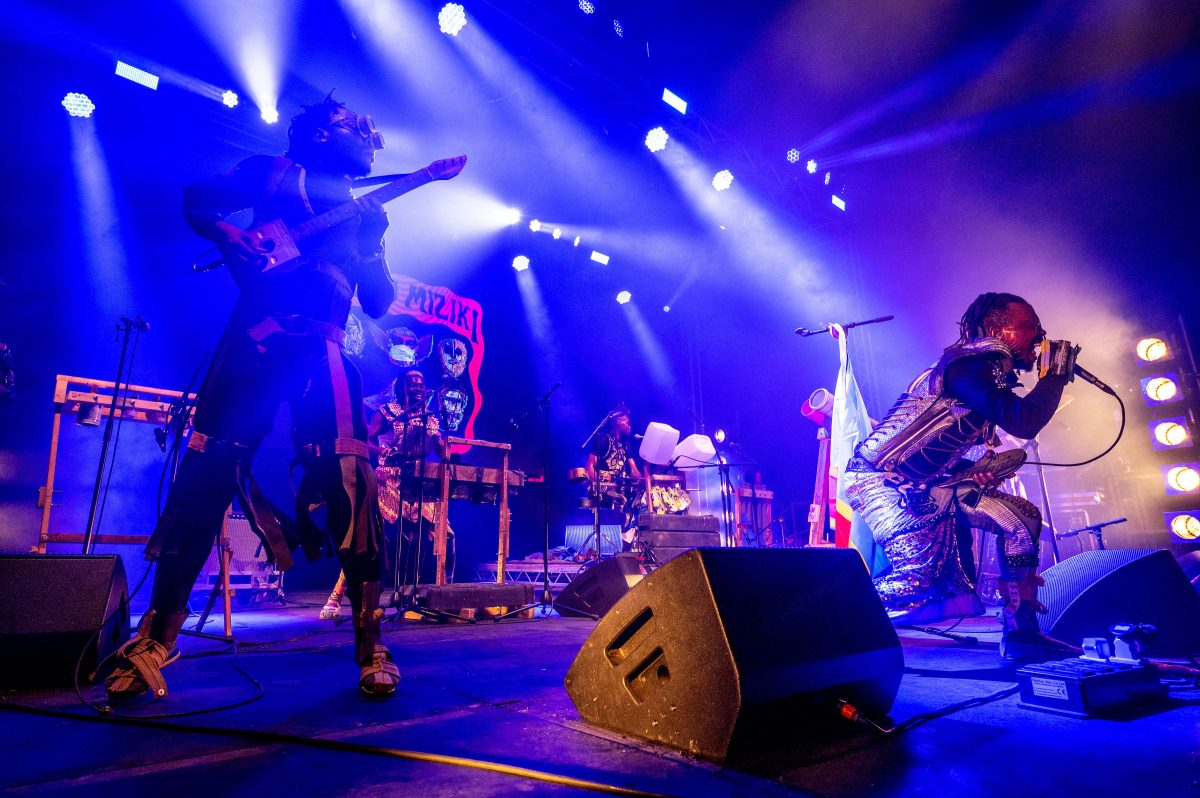
Notably, sensory spectacle Fulu Miziki Kolektive, which blew a huge crowd’s collective mind with its DIY junk orchestra. In wild costumes conveying monsters, aliens and futuristic deities, the band combines hypnotic rhythms, thumping bass and makeshift xylophones hit with spanners. All eyes are out on stalks. BCUC’s percussion was a harder hit and a heavier show, with an MC’s insistent, rasping flow in the 11 languages of South Africa; but sweet soul vocals are uplifting, and the audience are gripped in a euphoric trance as the wave of sound crashes over them.
For a horde in the woods, the festival closes to a different strain of percussive fury. Gwenifer Raymond, barefoot and alone with her guitar on a dark stage, traverses epic compositional landscapes with fierce intensity. She breathes fire into the rapt crowd hanging on her every note. It’s the last spark a whacked Womad needs to get itself home.
“We are descended from tribes who use music as therapy,” says BCUC. Perhaps we all are, or maybe we’re forming one here and now. It feels like a weekend of healing. By closing time, peace and contentment radiate across the site. People are drawn here by their deep love of music, to be lost in it, absorbed and transformed. We leave educated, re-energised and inspired.


